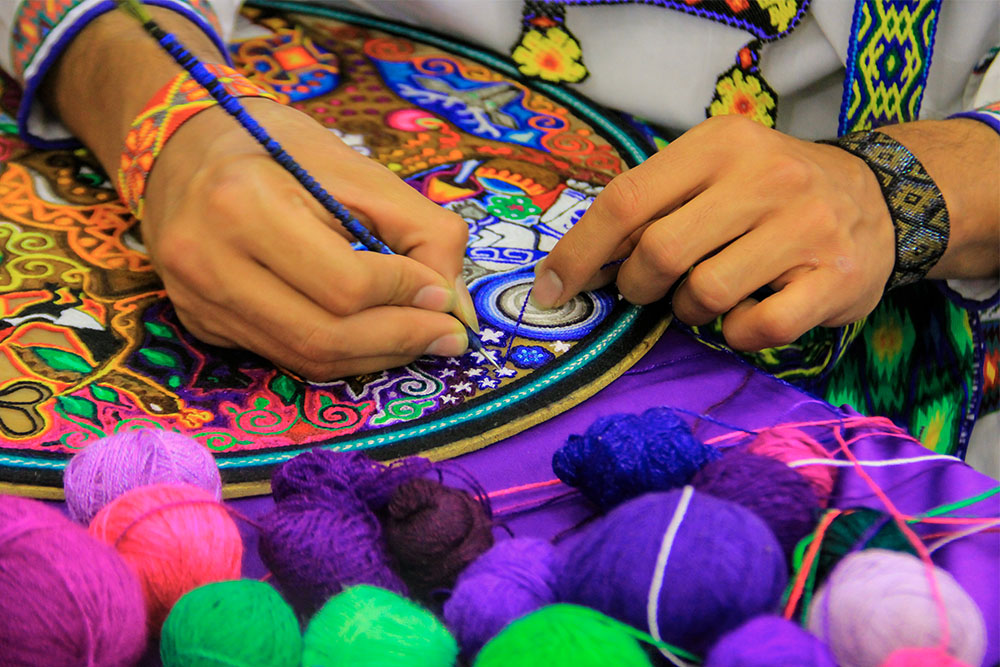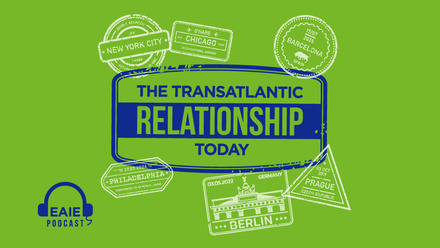Interwoven approaches: indigenisation and internationalisation

Continuing with Forum week, we look to one of the areas of internationalisation touched on in Winter Forum: the unexpected synergy between internationalisation and indigenisation. In today’s post, an example of national-level cooperation for student mobility and university partnerships between Mexico and Canada highlights the complementary relationship between indigenising and internationalising university campuses.
One of the main obstacles Indigenous people face in the international arena is the lack of Indigenous curricula and practices in higher education. “Too often, education systems do not respect indigenous peoples’ diverse cultures. There are too few teachers who speak their languages and their schools often lack basic materials. Educational materials that provide accurate and fair information on indigenous peoples and their ways of life are particularly rare,” according to the United Nations Department of Economic and Social Affairs, division for inclusive social development of Indigenous peoples. Consequently, academic institutions and governments have to implement initiatives to indigenise campuses – not only supporting campus indigenisation, but also prioritising indigenisation in their education policies and decision-making.
Indigenisation refers to the process of transforming education to include Indigenous knowledge, culture, beliefs and practices.
Indigenisation – the process of transforming education to include Indigenous knowledge, culture, beliefs and practices – has usually been approached with a local focus and internationalisation with a global one. This post explores how indigenisation and internationalisation can be addressed together, supporting campus indigenisation, through the positive correlation of strategic planning, programme development, and international engagement.
International strategic alliances toward campus indigenisation
How can you identify the right international partner with whom to pursue indigenisation efforts? An institution in a country with Indigenous populations, a country that has previous experience in indigenising education, or a country that has attempted reconciliation with Indigenous peoples would make a perfect partner.
Canadian institutions regard Mexico as a beneficial focus for their international education endeavours, facilitated by a number of developments: the Canada–Mexico Partnership established in 2004, the 2005 signing of the Letter of Intent to Promote Cooperation on Indigenous Issues, Canada’s 2014 International Education Strategy, and Mexico’s geographic proximity to Canada.
Nearly 16 million Indigenous people live in Mexico (2017), according to the National Commission for the Development of Indigenous Peoples. Throughout Mexico, 13 intercultural universities specialise in preserving and promoting the culture of Indigenous peoples, promoting local and regional development of Indigenous communities, and providing academic programmes that encompass the methodologies of Indigenous peoples. In recent years the Government of Mexico has created programmes and policies to empower its Indigenous peoples. For example, in 2003 the Congress approved the National Commission for the Development of Indigenous Peoples Act, which outlines actions for the development of Indigenous peoples. These attributes and qualities make Mexico the perfect ally to learn from and collaborate with about indigenisation.
Repurposing international programmes
Colleges and universities can develop international programmes (both inbound and outbound) with a focus on indigenisation – whether the purpose is to support student exchange, faculty and staff mobility, or professional development.
Institutions establish student exchange programmes with multiple partners so that their students can study abroad. What if universities were to focus these mobility programmes on indigenisation? For example, universities can promote the mobility of Indigenous students to a partner institution with a high Indigenous student population, intentionally sharing their culture and traditions with other Indigenous peoples. For non-Indigenous students, exchanges could focus on visiting Indigenous communities in other countries to learn about their history, beliefs, and traditions. Since 2012, the intercultural universities in Mexico have signed agreements with Lakehead University, University of Lethbridge, University of Regina, and Vancouver Island University, resulting in the mobility of dozens of students to share the history and culture of Indigenous peoples in Canada and Mexico.
In 2016, the University of Saskatchewan organised a summer programme for 20 Indigenous students to visit China. While the programme focused on Chinese culture and language, it also served as a space to meet other Indigenous students. According to the Confucius Institute at the University of Saskatchewan, at the end of the programme, Indigenous students “compared the similarities and differences between Canadian culture and Chinese culture, and between Aboriginal culture and Chinese ethnic cultures. Many felt that this tour has broadened their horizons and helped them develop a global mindset through experiencing a different culture and different language”.
Involvement on all levels
Faculty members and instructors are key to campus indigenisation at any academic institution. Through international mobility, Indigenous and non-Indigenous professors can learn anti-oppressive teaching strategies, course redesign, inclusive education, indigenisation of teaching, as well as other indigenisation initiatives that universities are developing. The World Indigenous Peoples Conference on Education, as well as the Canada–Mexico Roundtable on Intercultural/Indigenous Higher Education, offer academic institutions a space to discuss subjects of importance to Indigenous peoples. These include indigenisation of curricula, revitalisation of Indigenous languages, elders as traditional knowledge systems, and the academic challenges that Indigenous students and faculty members face in pre-kindergarten to postsecondary and higher education.
To foster the support of administrative staff, the University of Regina offered a weeklong intensive professional programme in Mexico City, in 2015. It exposed 32 university administrators to topics related to customer service, global leadership, cross-cultural communication strategies, Mexican culture and traditions, and the history and knowledge of Indigenous peoples in Mexico. The administrative staff had the opportunity to enhance their interpersonal skills, understand first-hand what students experience when they study abroad, and learn about the history of Mexican Indigenous peoples.
Through storytelling and narrative, institutions can honour and share Indigenous spirituality and traditional ways of knowing.
When institutions develop Indigenous-focus international programmes it is crucial they collaborate with Indigenous faculty members, Indigenous communities, and Indigenous elders. This way international offices can ensure that programme curricula incorporate appropriate Indigenous knowledge and is delivered by Indigenous peoples to support the success of students, professors, and administrative staff. Universities need to understand the history and importance of sharing knowledge through oral tradition and should invite elders of Indigenous communities to be key participants of these intercultural programmes. Through storytelling and narrative, institutions can honour and share Indigenous spirituality and traditional ways of knowing.
What’s next?
The actions that institutions are taking to support campus indigenisation through internationalisation show that universities and colleges can actively participate in both the cherishing and the sharing of Indigenous cultures through international engagement and programme development.
Higher education institutions need to understand that by establishing Indigenous-focus international programmes, they can:
- stimulate intercultural dialogue;
- sensitise students to the social construction of an active international citizenship;
- foster and protect cultural heritage in favour of humankind and future generations;
- promote tolerance, respect, mutual comprehension, and solidarity among students, faculty, and staff members from multiple backgrounds;
- value Indigenous cultural heritage;
- build respectful attitudes toward nature, cultural diversity and traditions according to Indigenous peoples’ beliefs;
- use that awareness when making executive decisions, developing policies, and implementing programmes.
While this scan of efforts on indigenisation through internationalisation offers valuable information and useful academic and administrative perspectives, further research into this subject is needed.






